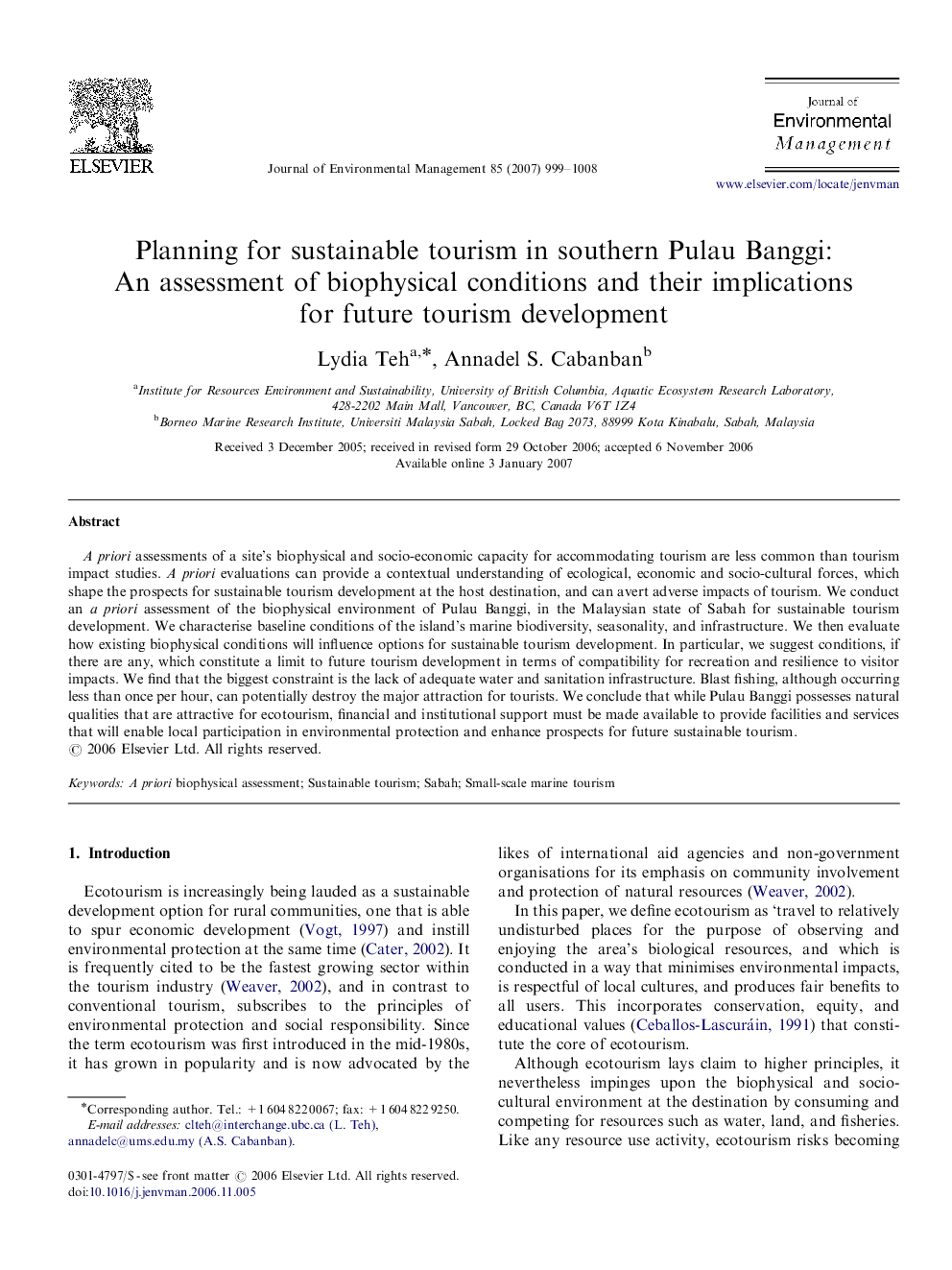| Article ID | Journal | Published Year | Pages | File Type |
|---|---|---|---|---|
| 1058503 | Journal of Environmental Management | 2007 | 10 Pages |
A priori assessments of a site's biophysical and socio-economic capacity for accommodating tourism are less common than tourism impact studies. A priori evaluations can provide a contextual understanding of ecological, economic and socio-cultural forces, which shape the prospects for sustainable tourism development at the host destination, and can avert adverse impacts of tourism. We conduct an a priori assessment of the biophysical environment of Pulau Banggi, in the Malaysian state of Sabah for sustainable tourism development. We characterise baseline conditions of the island's marine biodiversity, seasonality, and infrastructure. We then evaluate how existing biophysical conditions will influence options for sustainable tourism development. In particular, we suggest conditions, if there are any, which constitute a limit to future tourism development in terms of compatibility for recreation and resilience to visitor impacts. We find that the biggest constraint is the lack of adequate water and sanitation infrastructure. Blast fishing, although occurring less than once per hour, can potentially destroy the major attraction for tourists. We conclude that while Pulau Banggi possesses natural qualities that are attractive for ecotourism, financial and institutional support must be made available to provide facilities and services that will enable local participation in environmental protection and enhance prospects for future sustainable tourism.
